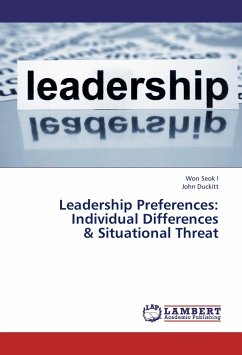Doctoral Thesis / Dissertation from the year 2008 in the subject Psychology - Social Psychology, grade: magna cum laude, University of Mannheim (Fakultät für Sozialwissenschaften, Lehrstuhl für Mikrosoziologie und Sozialpsychologie), language: English, abstract: A series of studies investigates the impact of regulatory fit on women's leadershipaspirations. A regulatory fit occurs when an outcome is presented in gain framesunder a promotion focus and in loss frames under a prevention focus. Combiningresearch on regulatory focus and research on stereotype threat it is argued thatregulatory fit may result from stereotype threat (loss frame) under a prevention focusand from the absence of stereotype threat (gain frame) under a promotion focus. Inline with previous research it is proposed that regulatory fit a) enhances motivation(Studies 1 and 2) and b) creates a feeling right experience that increases thepersuasiveness of external stimuli (Study 3). In all three experiments regulatory fitwas operationalized as experiencing stereotype threat when under a prevention focusor, respectively, experiencing the absence of stereotype threat when under apromotion focus. Further, women's aspirations to engage in a leadership role wereassessed. In Studies 1 and 2 it was shown that women's motivation to occupy aleadership role was enhanced in the regulatory fit conditions compared to women inthe nonfit conditions. Study 3 demonstrated that a stimulus (i.e., role model) was morepersuasive under regulatory fit. Women experiencing regulatory fit compared towomen in the nonfit conditions were more persuaded by role models, showing moreinterest in a leadership role when confronted with a positive model and less interestwhen confronted with a negative model. These studies show that stereotype threat canelicit regulatory fit, which in turn affects women's leadership aspirations. Futuredirections and limitations are discussed.
Hinweis: Dieser Artikel kann nur an eine deutsche Lieferadresse ausgeliefert werden.
Hinweis: Dieser Artikel kann nur an eine deutsche Lieferadresse ausgeliefert werden.








